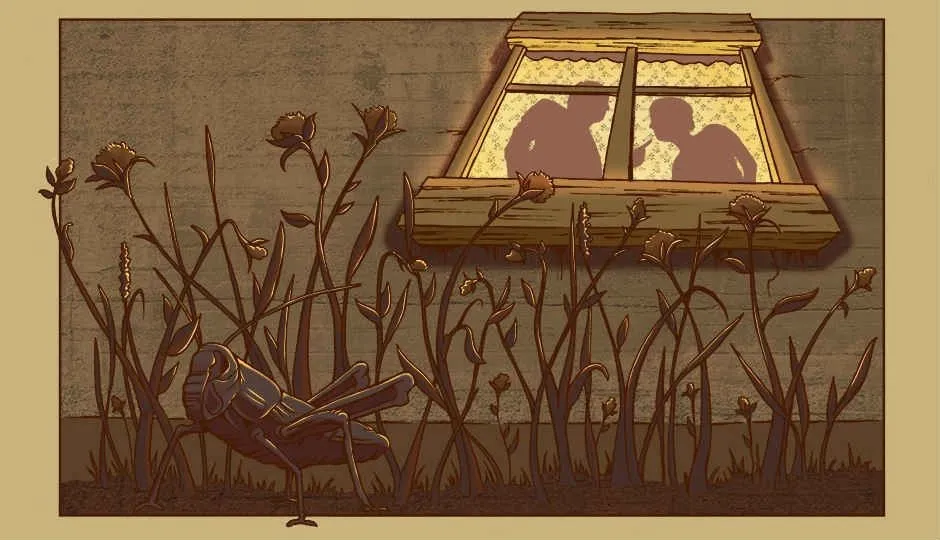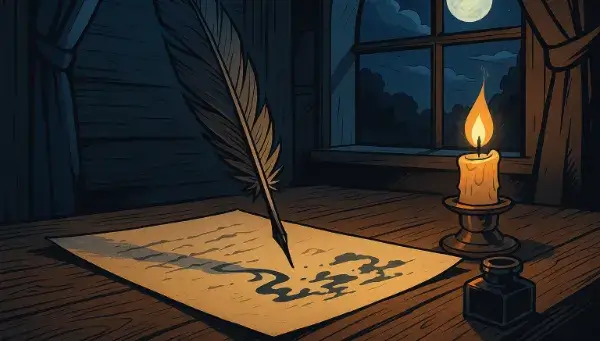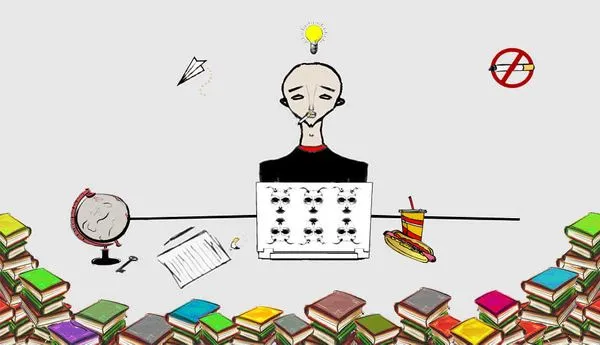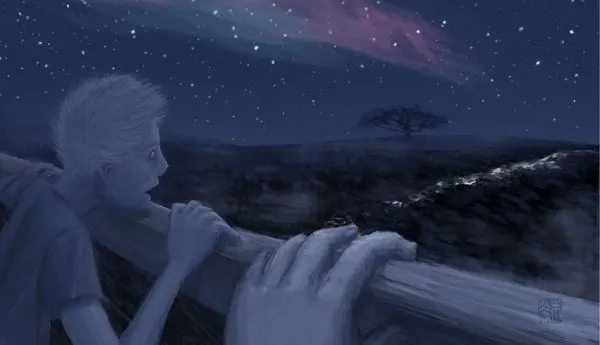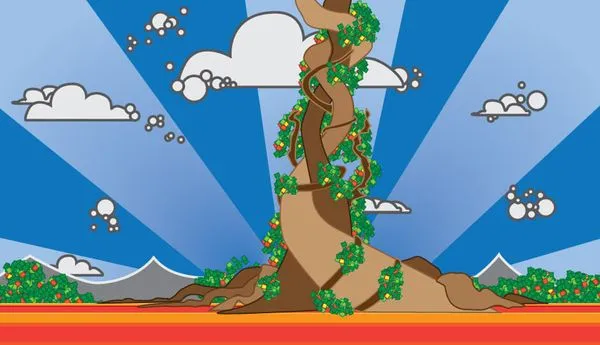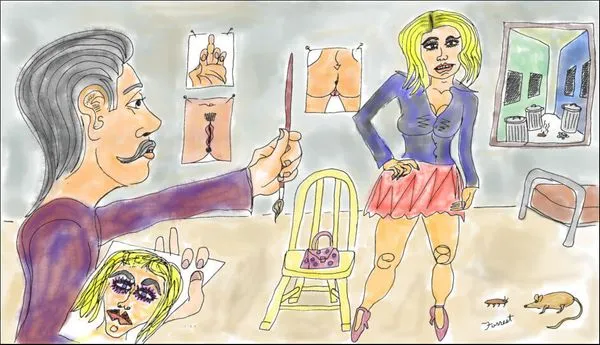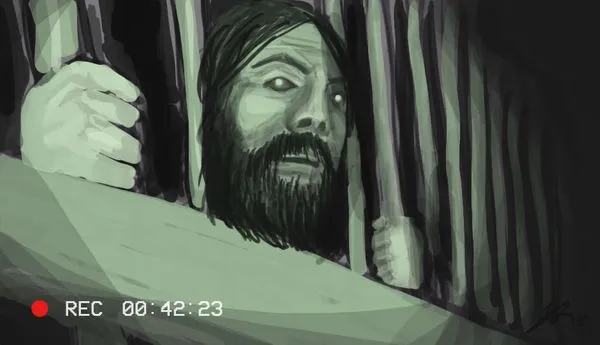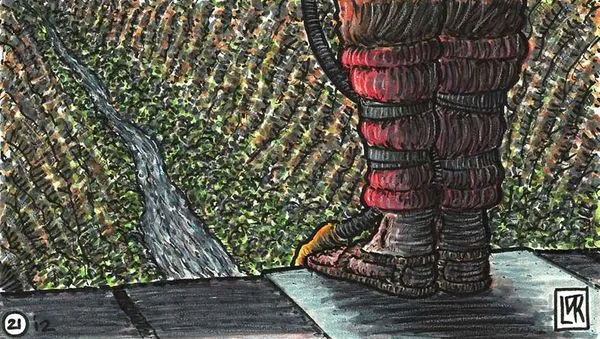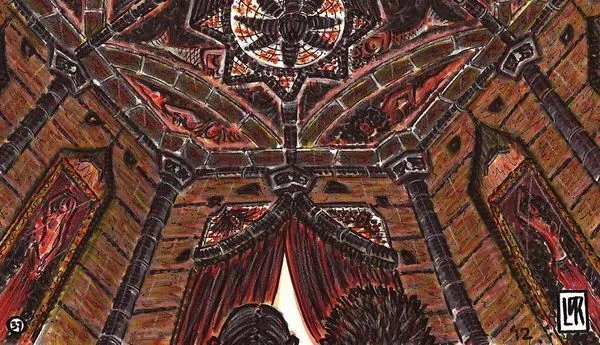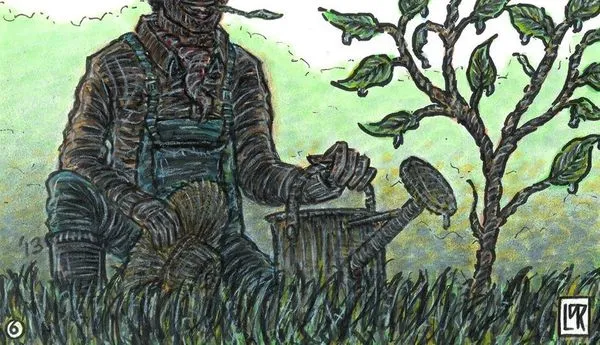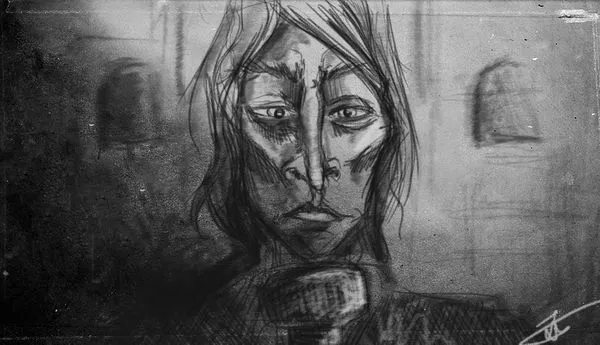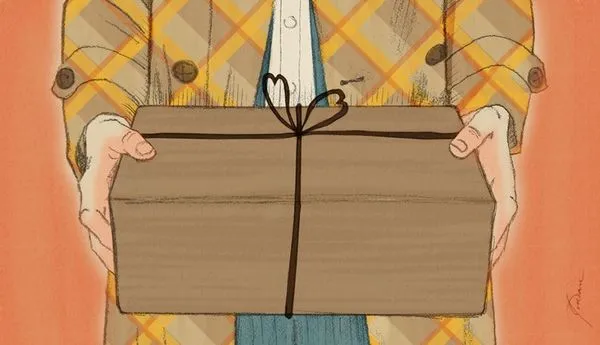Before We Had TV: a Memoir
Published on 2014-09-04
Just because we didn’t have TV before the 1950s doesn’t mean there weren’t other forms of home entertainment. I won’t go into the old life was tougher back then routine.
Nobody buys that anymore. Let’s just say we learned to improvise more than we do today and leave it at that.
This was also the pre-air conditioning era, at least up in the Rust Belt. That meant we dealt with sticky summer nights by throwing the blankets off our beds, opening the windows wide, setting up fans in strategic locations and sweating through the sheets.
Opening the windows had another advantage. The occasional, refreshing cross breeze brought with it sounds. Sounds that said, it’s summer, enjoy it while you can: a nocturnal bird song, amorous crickets, an infrequent car on our otherwise quiet side street, a freight train attacking the hill south of town. And the neighbors.
Fuzzy and Jenny were the neighbors, They lived in the back part of the house next door, along with two nameless children. The children had names, of course. I’ve long since forgotten them.
Maybe I never knew. It doesn’t matter now.
Fuzzy was a drunk. That’s what my dad called him. Dad wasn’t being mean. In the blunt language of the day, he was just a drunk. That’s what anyone would have called him: a drunk.
In summer, I was supposed to be in bed and asleep by ten. My privileged older brother got to stay up as long as he wanted. But on nights when Fuzzy and Jenny put on a show, I kept adult hours along with the rest of the family for as long as the show lasted.
It would start with someone shouting. If we were still downstairs, we’d all look at each other, bolt for the stairway and jostle up to my parents’ bedroom. We’d line up crossways on their bed, the four of us. The two windows alongside the bed were next to each other, but not very wide. That meant we all had to squeeze together to hear better, to get a better view.
Someone always lost out in the struggle. Being the youngest, it was usually me. After a while, I learned to sit on the floor between the bed and the wall and peer up over the window sill. As long as I kept my head out of the line of sight, I was okay. If I didn’t, there’d be a swift admonition, verbal from a parent, physical from my brother.
There were further admonitions for unnecessary commentary. “Quiet! They’ll hear us.” Or, “I missed what they just said because of you. Keep still!”
The other impediment to hearing was the cicada-like drone of the fans as they cycled obediently back and forth. If there was a lull in the show, my dad would turn on the bedroom fan for a while. Then the drama across the way would start up again and he’d say in a loud whisper to no one in particular, “Get the fan! Shut it off. Quick!” I’d try to win favor by being the first to reach the switch.
There was always swearing. Fuzzy used some of the same x-rated words my father used, some I’d never heard before. My mother never swore, but Jenny did a little. I didn’t always understand the things they were saying and learned to wait until the show was over to ask my parents. I didn’t always get a satisfactory answer.
There would be crying, too. Deep sobs from Jenny. The children would soon join in, crying the way children cry, not always knowing for sure why they were crying.
There were other sounds, some identifiable, like breaking glass or dishes hitting walls. Other times there’d be a hollow thud. My brother and I would speculate on the type of missile being thrown until our father threatened to close the windows if we didn’t, as he put it, “Pipe down.”
The cops only came once that I know of. They pulled all the way up on the lawn to the side porch door. When they tried to haul Fuzzy off, Jenny stood there, shrieking and pleading.
“No, don’t. He’s sorry. He told me he’s sorry. Please!”
Finally, they let him go. The cop car left, the porch door slammed and the lights inside went out. The show was over, at least for that evening.
More often than not, the ending was ambiguous. The shouting would stop for no apparent reason, and there’d be no denouement, no tidy resolution. My brother and I would head for our respective bedrooms to ponder the outcome before falling asleep and sweating through the sheets.
It all happened before I understood things like chronic unemployment, substance abuse, domestic violence, child welfare, orders of protection. Looking back, I realize now I lost my innocence before we had TV.

